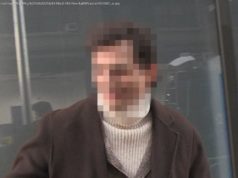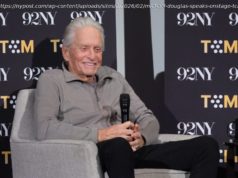The President Is Missing, co-written with James Patterson, indulges in a familiar trope: the country’s top executive as action hero.
There are, of course, more urgent symptoms of America’s civic decline than The President Is Missing, the new thriller co-authored by Bill Clinton and James Patterson. The book makes no claims to serious consideration, either literary or political; it is a standard-issue product, similar in plot and tone to a thousand other suspense stories in print and film.
Instead of a ticking time-bomb for the hero to defuse, The President Is Missing offers a ticking computer virus, code-named Dark Ages, that threatens to wipe out the nation’s infrastructure. This is the work of a group of bad guys known as Sons of Jihad—who, despite their name, we are assured are not Islamic terrorists, but rather some kind of “secular extreme nationalist” group that “opposes the influence of the West in central and southeastern Europe.” It is all vague enough to make clear that the Sons of Jihad are like SPECTRE in the Bond movies—generic bad guys, not a comment on actual world politics. And they meet the fate reserved for bad guys in this kind of book. It’s not much of a spoiler to reveal that, in the end, the virus is disarmed with seconds to spare, and the hero emerges covered in glory.
The difference is that the hero in this story is not a secret agent like James Bond or Jack Ryan, but the president of the United States himself. To say that this president, Jonathan Duncan, is based on Bill Clinton would be putting it mildly. Clintonologists will recognize many details of his life story in Duncan’s, with a few desultory changes: Duncan was raised by a hardworking single mother in North Carolina, rather than Arkansas; he meets his idealistic, no-nonsense soulmate at UNC, rather than Yale Law School.
Oddly, this Hillary Clinton figure is named Rachel Carson—presumably as someone’s homage to the author of Silent Spring. Whether that someone was either of the men whose names appear on the cover is open to question. Patterson acknowledges that he uses co-writers for most of his books; what you are buying when you buy a Patterson book is a brand, a genre, not the work of an individual mind. Bill Clinton has written a memoir, My Life, but no fiction until now, and presumably he has better things to do than crank out a formulaic 500-page novel.
Whatever Clinton’s precise role in the writing of the book, he agreed to put his name on it—it is an authorized product. And I read The President Is Missing with the sense that he relished the opportunity that fiction provides to give the public a perfected version of himself. For Jonathan Duncan is the president Bill Clinton seems to wish he had been, or that he believes the public wanted him to be, or both. Thus Clinton, who famously avoided the draft in Vietnam, supplies his alter-ego with a heroic military record that seems to be based on John McCain’s: Duncan is an Army Ranger who was taken prisoner in Iraq and refused to crack under torture. (For good measure, he was also a semi-pro baseball player.) And in what reads like an embarrassing instance of wish-fulfillment, Rachel Carson, the Hillary figure, is safely dead, leaving Duncan footloose and free to enjoy the world’s sympathy.
But these vanities are innocent compared to the deep fantasy at the center of The President Is Missing. Clinton and Patterson are far from the first people to imagine the president as an action hero, dodging bullets and explosions. Indeed, it was during Clinton’s presidency that the idea became popular, in movies such as Independence Day and Air Force One. But it has always been a sinister trope, and to see it endorsed by an actual ex-president only makes it more so. That is because the qualities of the action hero—decisiveness, combativeness, the ability to solve all problems and defeat all enemies singlehandedly—are much closer to the ideals of fascism than of liberal democracy.
Indeed, the idea of the president as an action hero is a way of making concrete a common mood in American politics over the last several decades. This is the feeling that all that is needed to solve the country’s problems is a strong leader set free from the shackles of politics. It is heavily symbolic that, to defeat the computer virus, the president must escape from the White House (thus the title), going in disguise to a safe house in Virginia, where he is joined by sympathetic world leaders and white-hat hackers. The White House is the people’s house and the seat of government; but in Clinton’s novel, that is precisely what makes it useless when a president wants to get things done.
Trumpian populism plays on such ideas quite openly, with its rhetorical attacks on “the deep state,” but the messianic expectations that greeted the election of Barack Obama had a similar psychic origin. The fantasy of an omnipotent leader is perpetually popular in democracies, because democratic politics is all about compromise and incrementalism. This is especially true of American democracy, since the Founders deliberately gave us a government resistant to radical change, designed to avoid the extremes of monarchical absolutism and popular whim. It is seldom that an American president is able to dramatically change the course of the country. It generally happens only in times of war or crisis, which is why historians, no less than the public, are fascinated by figures like Abraham Lincoln and Franklin Roosevelt—presidents who were able to suspend American laws and norms in the face of overwhelming danger.
In The President Is Missing, Clinton gets to play at being one of those rule-breaking presidents, rather than the battle-scarred veteran of the Lewinsky scandal. The novel’s title character is naturally hostile to the Sons of Jihad; but what really gets him mad are the domestic enemies who insist, always for selfishly “political” motives, on tying his hands in his struggle with the terrorists. (Party labels are strictly avoided in the novel, though since Duncan is so close to Clinton politically and personally, it is inevitable that he comes across as a Democrat.) The most hateful villain in the book is not Bach, the music-loving female assassin, or Suliman Cindoruk, the elusive terrorist mastermind. It is the Speaker of the House, Lester Rhodes, who blames the president for the terrorists’ crimes, even though he knows perfectly well that Duncan is working as hard as he can to stop them. “You could have said, “Okay, Mr. President, we are patriots, too, and we will respect what you’re doing, even if you can’t tell us everything that’s going on,’” Duncan imagines telling a hostile Congressional panel.






